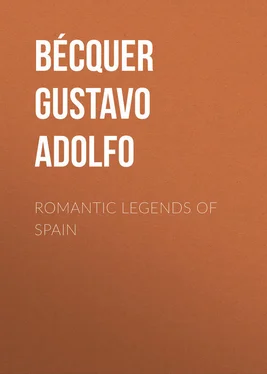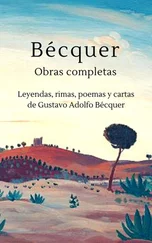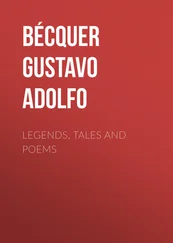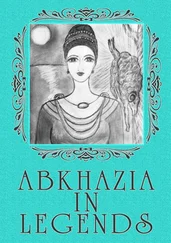Gustavo Bécquer - Romantic legends of Spain
Здесь есть возможность читать онлайн «Gustavo Bécquer - Romantic legends of Spain» — ознакомительный отрывок электронной книги совершенно бесплатно, а после прочтения отрывка купить полную версию. В некоторых случаях можно слушать аудио, скачать через торрент в формате fb2 и присутствует краткое содержание. Жанр: foreign_antique, foreign_prose, на английском языке. Описание произведения, (предисловие) а так же отзывы посетителей доступны на портале библиотеки ЛибКат.
- Название:Romantic legends of Spain
- Автор:
- Жанр:
- Год:неизвестен
- ISBN:нет данных
- Рейтинг книги:4 / 5. Голосов: 1
-
Избранное:Добавить в избранное
- Отзывы:
-
Ваша оценка:
- 80
- 1
- 2
- 3
- 4
- 5
Romantic legends of Spain: краткое содержание, описание и аннотация
Предлагаем к чтению аннотацию, описание, краткое содержание или предисловие (зависит от того, что написал сам автор книги «Romantic legends of Spain»). Если вы не нашли необходимую информацию о книге — напишите в комментариях, мы постараемся отыскать её.
Romantic legends of Spain — читать онлайн ознакомительный отрывок
Ниже представлен текст книги, разбитый по страницам. Система сохранения места последней прочитанной страницы, позволяет с удобством читать онлайн бесплатно книгу «Romantic legends of Spain», без необходимости каждый раз заново искать на чём Вы остановились. Поставьте закладку, и сможете в любой момент перейти на страницу, на которой закончили чтение.
Интервал:
Закладка:
His loyal friends, after raising what money they could for the children, gathered together and published in three small volumes the most characteristic of Becquer’s writings, – a series of lyrical poems, 2 2 Of the seventy-six poems that make up the Rimas , thirty-two are given in literal English rendering by Lucy White Jennison (“Owen Innsley”) as the third section of her Love Songs and Other Poems (The Grafton Press, New York, 1883), and a few are similarly rendered by Mrs. Humphry Ward in the article already mentioned. A complete translation in English verse, by Jules Renard of Seattle, has just come (1908) from The Gorham Press, Richard G. Badger, Boston.
the letters From My Cell , 3 3 Not, to my knowledge, translated into English.
some legends and tales of unequal merit; 4 4 Except for a few magazine waifs and strays, usually in abridged form, and for seven out of the twelve stories in W. W. Gibbings’ Terrible Tales , where the translation, according to Professor Olmsted, is “often inaccurate,” these legends have not before been translated into English. The twenty-one here given include everything even remotely in the nature of a tale contained in the three volumes, with the exception of the two East Indian legends already mentioned, and the two witchcraft tales in From My Cell . Good as these witch stories are, it seemed a pity to take them out of their context. What might be considered further omission is noted later. Of the translations in this volume, several have appeared in Short Stories , two in The Churchman , and one in the Boston Evening Transcript .
and a few miscellaneous articles on architecture, literature and the like.
The Rimas almost immediately established Becquer’s fame. He is counted to-day among the chief lyrists of the nineteenth century. These poignant snatches of song pass, in theme, from life to love and from love to death. So far as they give, or purport to give, a history of the poet’s heart, they tell of passion at first requited, then of estrangement and despair. It is supposed that a certain Julia Espín y Guillén, later the wife of Don Benigno Quiroga Ballesteros, a living Spaniard of distinction, figures to some extent in the Rimas . The house of her father, director of the orchestra in the Teatro Reál , was a resort of young musicians, artists and men of letters, and here Becquer, during his earlier years in Madrid, was a frequent guest. There seems little doubt that his youthful devotion was given, though in silence, to this disdainful brunette, but the poems likewise tell of a love “of gold and snow.” There is a green-eyed maiden, too, whom he essays to comfort for this peculiarity, – though, indeed, eyes of jewel green, strangely fascinating, are not rare in Spain. He may have had her in mind in writing his legend of The Emerald Eyes . And one of the most beautiful lyrics follows out the slight thread of story in Three Dates , representing the poet as gazing night after night up from that ancient Toledo square, with its glorified rubbish-heap, to the ogive windows of the convent where the nun who had so thrilled his imagination was immured. Over the spirit of Becquer, to whom the immaterial was ever more real than the material, no one actual woman held lasting sway. He tells the truth of the matter in his eleventh lyric:
I am black and comely; my lips are glowing;
I am passion; my heart is hot;
The rapture of life in my veins is flowing.
For me thou callest? – I call thee not.
Pale is my forehead and gold my tresses;
Endless comforts are locked in me,
Treasure of hearthside tendernesses.
’Tis I whom thou seekest? – Nay, not thee.
I am a dream, afar, forbidden.
Vague as the mist on the mountain-brow,
A bodiless glory, haunting, hidden;
I cannot love thee. – Oh, come! come thou!
Becquer himself was wont to ascribe the premature death of poets, that breaking of the harp while yet the golden chords have yielded but their least of melodies, to a restless fulness of life, the imprisoned vapor that bursts the vessel. This appears with pathetic emphasis in the Introduction that he wrote, not long before his death, for a projected volume of tales and fantasies. He felt that he must rid his fevered brain of their importunity, but he had begun to give expression to only one, The Woman of Stone , when death broke the magic pen. The story remains a fragment, 5 5 And therefore has not been included in this volume.
not passing beyond its opening pages of rich artistic description, nor can its course be clearly conjectured even though in The Kiss , and in the closing passages of his Literary Letters to a Woman , his imagination hovers about the theme. He left, like Hawthorne, many tantalizing titles that suggest the greatness of our loss. That drama on “The Brothers of Sorrow,” that poem on the discovery of America, those Andalusian novels on “The Last Minstrel,” “To Live or Not to Live,” those Toledo legends on “The Foundress of Convents,” “ El Cristo de la Vega ,” “The Angel Musicians,” those fantasies on “Light and Snow,” “The Diana of the Indies,” “The Life of the Dead,” – these are but a few of the conceptions that teemed in his mind but found no outlet to the world. It seemed to his friends, who knew the man and had listened to his marvellous talk, that the scanty handful of tales they could collect from newspapers here and there made so inadequate a showing as almost to misrepresent his powers. Yet however thwarted and wronged by circumstance this harvest of his imagination may be, it deserves attention if only for its finer and less obvious qualities. Becquer charges himself with a melancholy temperament, and seldom, in fact, do we find in these pages the blither humor playing in The Set of Emeralds ; but the occasional morbidness of his tone is due rather, it would seem, to illness and its consequent despondency than to any native quality of his thought. He deals too much in the horrible for modern taste, but he cannot claim, like Baudelaire, to have “invented a new shudder.” Tales grounded in folk-lore are bound to contain elements of superstitious terror, and the affinity of these legends in that respect is rather with German balladry and the earlier romanticism in general than with the genius of Poe. Becquer’s truer kinship is with Hawthorne, whose outer faculty of close and minute observation is his as well as the inner preoccupation with mystery and symbol. All the senses of this young Spaniard seem to have been of the finest, his exquisite hearing entering into these tales as effectively as his keen sight; but he is most himself in presence of the dim, the fugitive, the impalpable. His mind was essentially mystical. His religion was not without its human side. In brooding on the inequalities of the mortal lot, he finds comfort in the reflection: “God, though invisible, yet holds a hand outreached to lift a little the burden that presses on the poor.” But faith in him was of the very fibre of imagination. He even lent a certain sympathetic credence to the mediæval legends of the Church, at least when the spell of Toledo was upon him. “Outside the place that guards their memory,” he says, “far from the precincts which still preserve their traces, and where we seem yet to breathe the atmosphere of the ages that gave them being, traditions lose their poetic mystery, their inexplicable hold upon the soul. At a distance we question, we analyze, we doubt; but there faith, like a secret revelation, illuminates the spirit, and we believe.” In a letter from Veruela to a lady of his acquaintance, a letter relating a brief but lovely legend 6 6 Not included in this volume because it should not be taken from its context.
of an appearance of the Virgin, he asserts: “Only the hand of faith can touch the delicate flowers of tradition.” “God,” he elsewhere says, “is the glowing, eternal centre of all beauty.”
Интервал:
Закладка:
Похожие книги на «Romantic legends of Spain»
Представляем Вашему вниманию похожие книги на «Romantic legends of Spain» списком для выбора. Мы отобрали схожую по названию и смыслу литературу в надежде предоставить читателям больше вариантов отыскать новые, интересные, ещё непрочитанные произведения.
Обсуждение, отзывы о книге «Romantic legends of Spain» и просто собственные мнения читателей. Оставьте ваши комментарии, напишите, что Вы думаете о произведении, его смысле или главных героях. Укажите что конкретно понравилось, а что нет, и почему Вы так считаете.












